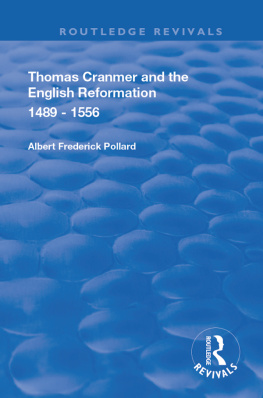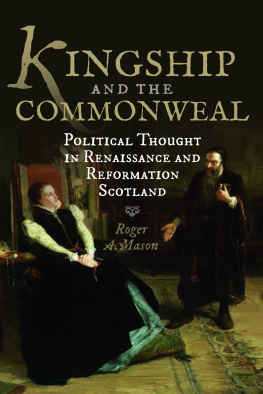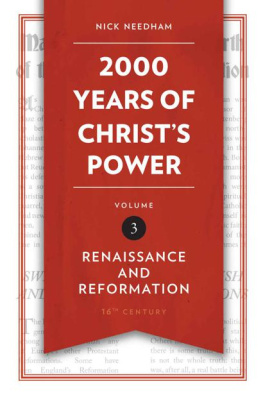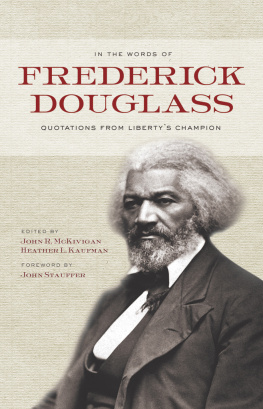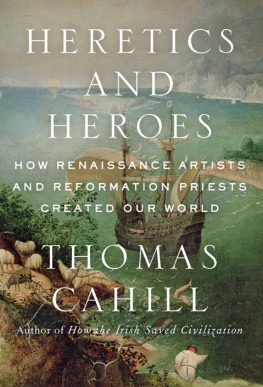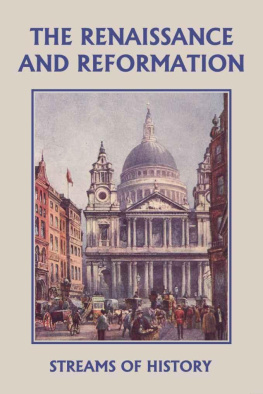Source.Rutland Papers, p. 12. Published by the Camden Society, 1842.
THIS DONE, THE CARDINAL, AS Archbishop of Canterbury, shewing the King to the people at the iiij parties of the said pulpit, shall say in this wise; Sirs, I here present Henry, true and rightful, and undoubted inheritor of the laws of God and man, to the crown and royal dignity of England, with all things thereunto annexed and appertaining, elect, chosen, and required by all three estates of the same land, to take upon him the said crown, and royal dignity, whereupon ye shall understand that this day is prefixed and appointed by all the peers of this land for the consecration, enunciation, and coronation. Whereunto the people shall say, with a great voice, Yea. Yea. Yea. So be it King Henry! King Henry!
Soon upon the said Cardinal, as Archbishop of Canterbury, being reuysshed as appertaineth for celebration of mass and also the foresaid Bishops of Exeter and Ely on both sides as above, with other Bishops, and with the Abbot of Westminster, who oweth always to be near the King for his information in such things as concerneth the solemnity of the coronation, the King shall be brought honourably from his said seat unto the high altar, where the Chancellor of England shall set down the chalice, and likewise the Bishop of Chichester his patten.
The Queen following the King thither, going afore her the lords as above bearing her crown, sceptre, and rod, and the abovesaid Bishops sustaining her, for her shall be ordained, on the left side of the high altar, a folding stool wherein she shall sit while the King shall be required of the keeping of the customs and laws of England, and that done, whilst Veni Creator Spiritus is a singing, and all the while the King is anointed, she shall kneel praying for the King and her self.
At the which altar the King ought to offer a pall, and a pound of gold, xxiiijli in coin, which shall be delivered unto him by the Chamberlain; and, forthwith, the pavement afore the high altar worshipfully arrayed with carpets and cushions, the King shall then lie down grovelling, whilst the said Cardinal as Archbishop, say upon him, Deus humilium, which done, the said Cardinal may, at his pleasure, command some short sermon to be said, during the which the said Cardinal shall sit before the altar, his back towards the same, as is the custom, and the King shall sit opposite him, face to face, in a chair prepared as to his high estate accordeth.
The sermon ended, if any such be, the Cardinal and the King that is to be crowned so sitting as is above said, the same Cardinal with an open and distinct voice shall ask the King under this form: Will ye grant and keep, to the people of England, the laws and customs to them as of old rightful and devout kings granted, and the same ratify and confirm by your oath and especially the laws, customs, and liberties to be granted to the clergy and people by your noble predecessor and glorious King Saint Edward? The King shall answer, I grant and promise. And when the King, before all the people, hath promised truly to grant and keep all the promises, then shall the said Cardinal open unto him the special articles whereunto the King shall be sworn, the same Cardinal saying as followeth: Ye shall keep, after your strength and power, to the Church of God, to the clergie, and the people, whole peace, and goodly concord. The King shall answer, I shall keep.
Ye shall make to be done after your strength and power, equal and rightful justice in all your dooms and judgements, and discretion with mercy and truth. The King shall answer, I shall do. Do ye grant the rightful laws and customs to be holden, and promise ye, after your strength and power, such laws as to the worship of God shall be chosen by your people by you to be strengthened and defended? The King shall answer, I grant and promise.
Source.Holinsheds Chronicle, Vol. III., p. 482. (London, 1808.)
SHORTLY AFTER FOR THE BETTER preservation of his royal person, he constituted and ordained a certain number as well of archers, as of divers other persons, hardy, strong, and active to give daily attendance on his person, whom he named yeomen of his guard, which precedent men thought that he learned of the French king when he was in France. For it is not remembered that any king of England before that day used any such furniture of daily soldiers. In this same year a kind of sickness invaded suddenly the people of this land, passing through the same from the one end to the other. It began about the one and twentieth of September, and continued until the latter end of October, being so sharp and deadly that the like was never heard of to any mans remembrance before that time.
For suddenly a deadly burning sweat so assailed their bodies and distempered their blood with a most ardent heat, that scarce one amongst an hundred that sickened did escape with life; for all in manner as soon as the sweat took them, or within a short time after, yielded the ghost. Beside the great number which deceased within the city of London, two mayors successively died within eight days and six aldermen. At length, by the diligent observation of those that escaped (which marking what things had done them good, and holpen to their deliverance, used the like again), when they fell into the same disease the second or third time as to divers it chanced, a remedy was found for that mortal malady which was this. If a man on the day time were taken with the sweat, then should he straight lie down with all his clothes and garments and continue in the sweat four and twenty hours after so moderate a sort as might be. If in night he chanced to be taken, then should he not rise out of his bed for the space of four and twenty hours, so casting the clothes that he might in no wise provoke the sweat, but lie so temperately that the water might distil out softly of its own accord. And to abstain from all meat if he might so long suffer hunger and to take no more drink neither hot nor cold than would moderately quench and assuage his thirsty appetite. Thus with lukewarm drink, temperate heat and measurable clothes many escaped: few which used this order (after it was found out) died of that sweat. Marry! one point diligently above all other in this cure is to be observed, that he never did put his hand or feet out of the bed to refresh or cool himself, which to do is no less jeopardy than short and present death. Thus this disease coming in the first year of King Henrys reign, was judged (of some) to be a token and sign of a troublesome reign of the same king, as the proof partly afterwards shewed itself.



